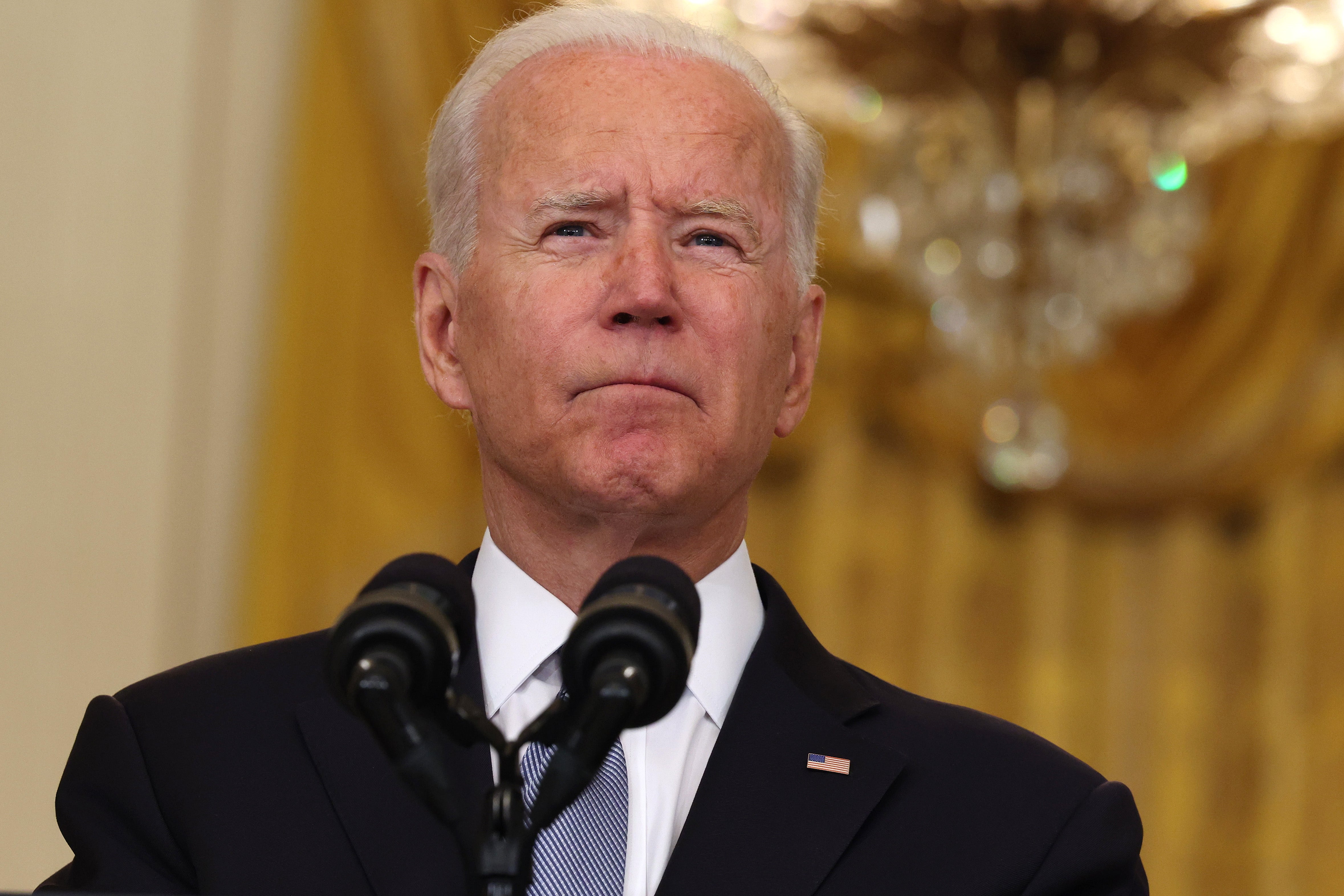Biden won’t extend $300 unemployment benefit past September
States facing rising unemployment rates can use Covid aid funds to extend benefits for their citizens

Your support helps us to tell the story
From reproductive rights to climate change to Big Tech, The Independent is on the ground when the story is developing. Whether it's investigating the financials of Elon Musk's pro-Trump PAC or producing our latest documentary, 'The A Word', which shines a light on the American women fighting for reproductive rights, we know how important it is to parse out the facts from the messaging.
At such a critical moment in US history, we need reporters on the ground. Your donation allows us to keep sending journalists to speak to both sides of the story.
The Independent is trusted by Americans across the entire political spectrum. And unlike many other quality news outlets, we choose not to lock Americans out of our reporting and analysis with paywalls. We believe quality journalism should be available to everyone, paid for by those who can afford it.
Your support makes all the difference.Enhanced weekly $300 unemployment benefits for US citizens are set to expire on 6 September and top officials from the Joe Biden administration said they will not seek to reinstate them.
“The temporary $300 boost in benefits will expire on 6 September, as planned,” treasury secretary Janet Yellen and labour secretary Marty Walsh said in a letter to lawmakers on Thursday.
Some states have faced rising unemployment rates, even as the national level for it has dipped to 5.4 per cent. These states can continue to extend benefits for their citizens from Covid-19 aid funds that have been allocated to them, the officials said.
The benefits that citizens have been receiving was under a $1.9 trillion economic aid bill, known as the American Rescue Plan Act after it was enacted in March this year.
The benefits, designed to help those who lost their jobs because of the pandemic, were enacted under a federal act passed by former president Donald Trump last year. The boost was supposed to be $600, but it was cut in half and extended twice until 6 September under the Rescue Plan Congress passed in March.
A special pandemic programme for gig-economy workers who do not qualify for regular unemployment benefits and additional weeks of benefits for those unemployed in the long run are also covered by the bill.
The $300 unemployment benefit was a component as well, serving as a weekly supplement to traditional benefits paid for by the states.
Ms Yellen and Mr Walsh, however, said the $300 benefit was “always intended to be temporary.”
Other parts of the stimulus bill, however, can allow states to use relief funds to sustain some of the benefits, including helping those unemployed for the long term.
Some states, including California, Nevada, and New York, have unemployment rates above the national average, reported The New York Times.
It “makes sense” for such states to give additional benefits to their citizens, said Ms Yellen and Mr Walsh, who added that the surge in coronavirus cases spurred by the virus’s Delta variant can throw short-term challenges to local economies.
They said these states can use parts of the $350 billion direct aid allocated to them from the American Rescue Plan.
“Where a more gradual wind down of income support for unemployed workers makes sense based on local economic conditions, American Rescue Plan funds can be activated to cover the cost of providing assistance to unemployed workers beyond 6 September,” Ms Yellen and Mr Walsh said in the letter.
There has, however, been marked opposition to the aid plan from the beginning, mostly from the Republican party, who maintain that the $300 aid has hampered businesses from hiring and has been a disincentive for the unemployed to start working again.
Twenty-four states led by the Republicans moved to end some of the benefits before their expiry dates, according to The New York Times.
Join our commenting forum
Join thought-provoking conversations, follow other Independent readers and see their replies
Comments